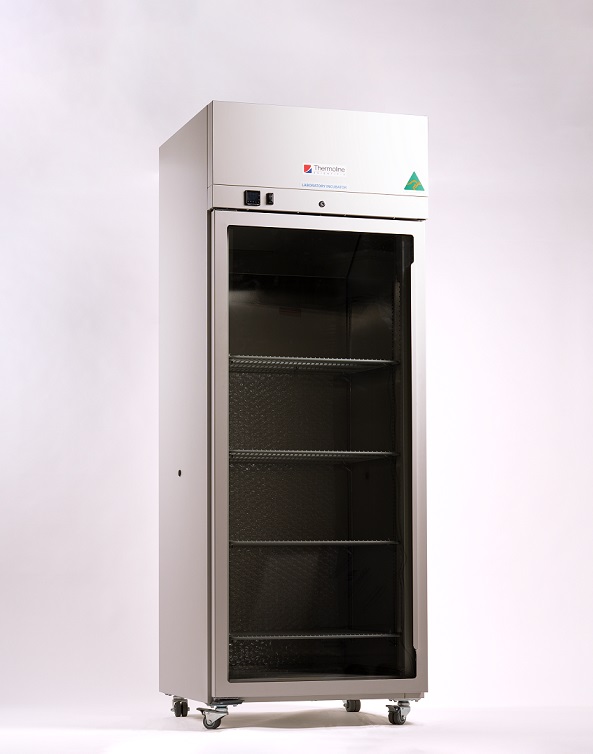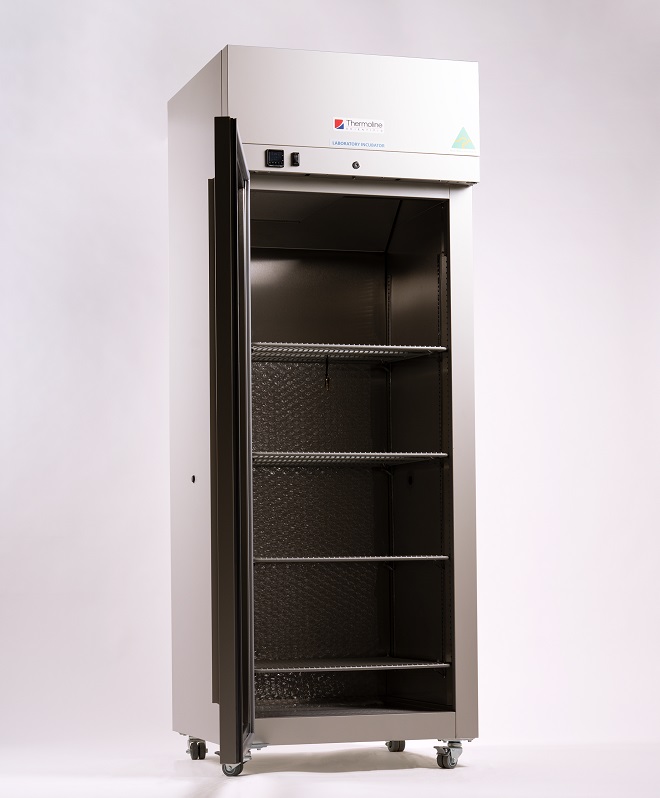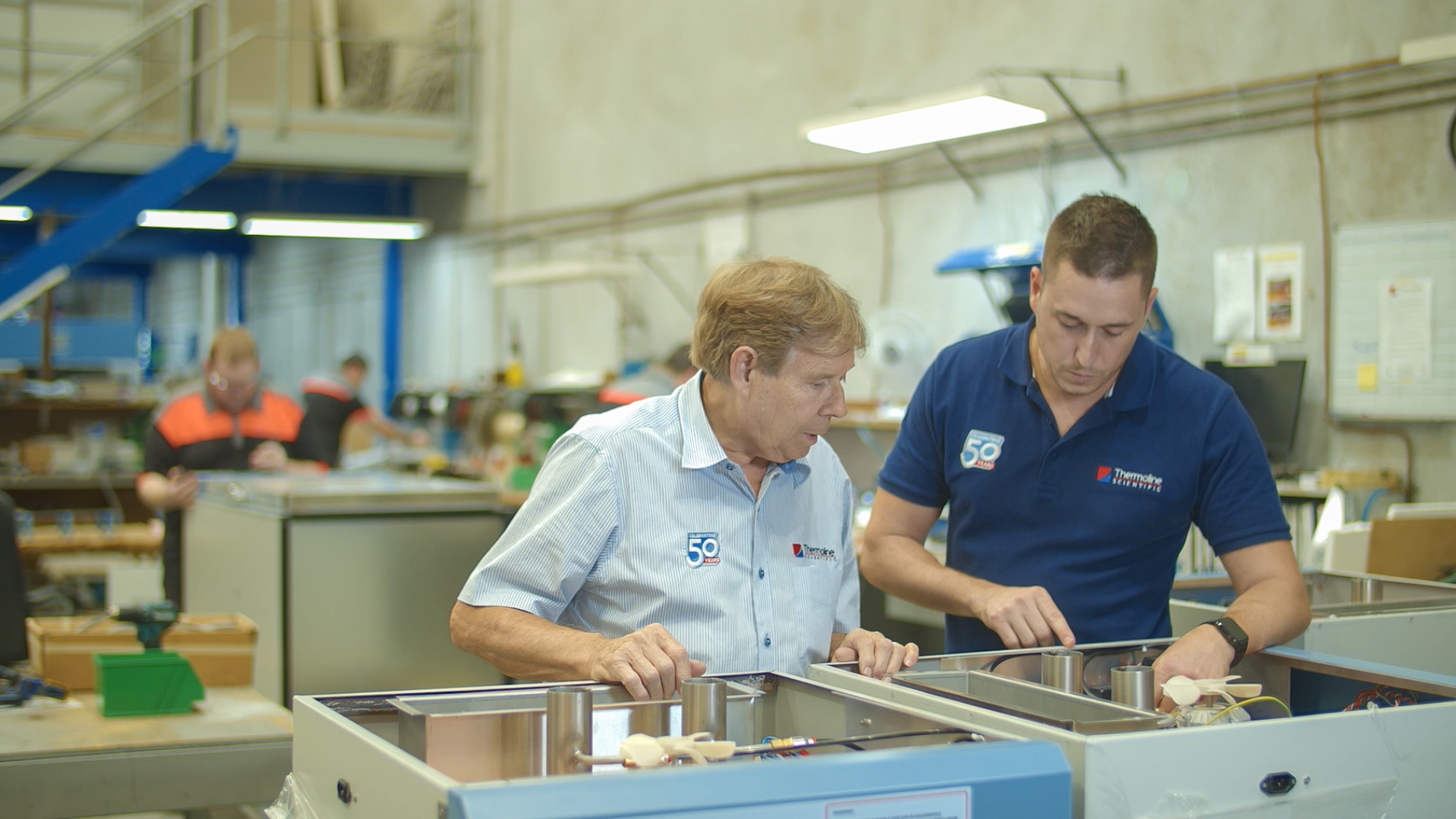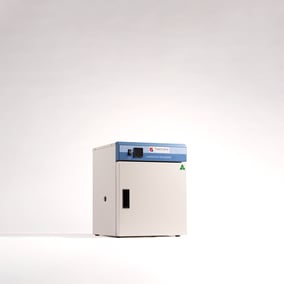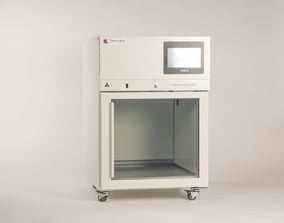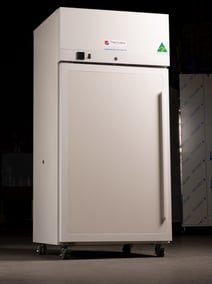Premium Incubators TI
Thermoline has eight laboratory incubators available, all designed and manufactured in Australia.
This upright floor-standing range is made to meet your clinical environment's high standards; our premium incubators are innovative, easy to use, and deliver consistent performance.
This range, with an internal fan for impressive spatial uniformity and temperature recovery after door openings, is designed to meet the requirements of highly demanding and busy labs.
Overview
Designed and manufactured in Australia, our large-capacity premium upright incubators are tailored to suit your clinical environment. As the nationwide industry standard, these incubators provide your lab with a stable, controlled environment essential for microbiology, cell culture, and molecular biology research.
Key Features
- Digital Microprocessor Control: Ensures precise and stable temperature regulation.
- Wide Temperature Range: From ambient +5°C to +60°C, suitable for all non-critical samples requiring incubation.
- User-Friendly Interface: Easy to operate, ensuring efficient and hassle-free use.
- Over-Temperature Safety Feature: Provides an additional layer of protection for your samples.
- Stainless-Steel Internal Liner: Ensures durability and easy cleaning, maintaining a sterile environment.
- Magnetic Door Gasket: Ensures complete door closure, maintaining a stable internal environment.
Benefits
- Stable and Controlled Environment: Ideal for various research applications, including microbiology, cell culture, and molecular biology.
- Enhanced Sample Protection: The over-temperature safety feature ensures your samples are always safeguarded.
- Durability and Cleanliness: The stainless-steel internal liner and magnetic door gasket combine form with function, offering both aesthetic appeal and practical benefits.
- Large Research Storage: Ample space to accommodate extensive research storage needs, making it a perfect addition to any lab set-up.
Five Common Uses for a Large Upright Laboratory Incubator
-
Microbiology Research
- Cultivating Microorganisms: Incubators provide the precise and controlled environment necessary for growing bacterial, fungal, and other microbial cultures, essential for studying their characteristics, behaviours, and responses to various conditions.
- Pathogen Testing: Used in clinical laboratories to incubate samples that may contain pathogens, aiding in the diagnosis of infections and diseases.
-
Cell Culture
- Growing Eukaryotic Cells: Essential for cultivating mammalian cells, plant cells, and other eukaryotic organisms used in biomedical research, drug development, and genetic studies.
- Tissue Engineering: Provides the necessary environment for the growth and maintenance of tissues and organs being engineered for research and therapeutic purposes.
-
Molecular Biology
- DNA and RNA Amplification: Incubators are used in procedures such as polymerase chain reaction (PCR) and other amplification techniques that require precise temperature control.
- Protein Expression Studies: Cultivating cells that have been genetically modified to express certain proteins, aiding in the study of protein function and interaction.
-
Pharmaceutical Testing
- Stability Testing: Incubators are used to test the stability and shelf-life of pharmaceutical products under various environmental conditions.
- Drug Efficacy Studies: Growing and maintaining cell cultures to evaluate the effects of new drugs and treatments on cellular functions and viability.
-
Food and Beverage Industry
- Quality Control: Used to incubate samples for microbial testing, ensuring the safety and quality of food and beverage products.
- Fermentation Processes: Provides the controlled environment needed for fermentation, which is crucial in the production of products such as yogurt, beer, and wine.
These common uses highlight the versatility and importance of large upright laboratory incubators in various fields of research, clinical diagnostics, and industrial applications.
The large-capacity premium upright incubator is the logical choice for labs requiring a reliable and stable incubation environment. Its combination of advanced features and user-friendly design makes it an essential tool for any research facility.
Specifications
- Dimensions
-
TI-520F-(GD/SD) TI-1100F-(GD/SD) External WxDxH (mm) 740x840x2010 1470x840x2010 Internal WxDxH (mm) 590x530x1430 1320x530x1430 Clearance Front (mm) 740 Back (mm) 100 Sides (mm) 100 - Technical Specification
-
TI-520F-(GD/SD) TI-1100F-(GD/SD) Temperature Range Ambient +5°C to +60°C Temperature Control Stability +/- 0.1°C Temperature Uniformity +/- 1.0°C +/- 2.0°C Nominal Capacity 520L 1100L Porthole Diameter 13mm Weight 150kg 270kg Electrical 450W/230V 900W/230V - Features
-
TI-520F-(GD/SD) TI-1100F-(GD/SD) Shelves (max @100mm spacing) 4 4 levels Castors X X Fan Forced Air Circulation ✔ ✔ Omron E5CC-T Controller ✔ ✔ Door Locks ✔ ✔ BMS Plug ✔ ✔ Ecofoam Insulation ✔ ✔ - Safety
-
TI-520F-(GD/SD) TI-1100F-(GD/SD) Over Current Protection ✔ ✔ Over Temperature Safety ✔ ✔ - Options
-
TI-520F-(GD/SD) TI-1100F-(GD/SD) Glass or Solid Doors Nomenclature designations: Glass Door (GD), Solid Door (SD) Additional Shelves Additional Plastic Coated shelves to suit Customisable Port Hole Add additional 13mm port holes or choose 50mm port holes
Downloads
Support & FAQs
At Thermoline, we strive to supply helpful customer support to ensure that you get the most out of our products. We are committed to providing whatever support our customers need, wherever they are in the world. If you can't find your solution in the below FAQs or Knowledge Base, please contact our friendly support team.
- What temperature should a slide warmer be set at?
A slide warmer is a laboratory equipment used to heat microscope slides for various applications such as drying, fixation, or staining of biological specimens. The temperature setting for a slide warmer can vary depending on the specific application, but it is typically set to a temperature between 37°C to 60°C.
For example, if the slide warmer is being used for drying microscope slides after they have been washed, the temperature setting may be set at 37°C to avoid overheating and damaging the specimen. However, if the slide warmer is used for fixing or staining biological specimens, the temperature setting may be higher, typically between 50°C to 60°C, depending on the specific protocol or procedure being used.
It is important to follow the specific instructions for the application and to monitor the temperature to ensure that it remains within the appropriate range to avoid overheating or damaging the specimens.
- What is a CO₂ incubator used for?
- A CO₂ incubator is used to create and maintain the ideal conditions for cell and tissue culture, providing controlled temperature, humidity, and carbon dioxide levels essential for research in areas like cell biology, microbiology, and drug development.
- What is the difference between a normal incubator and a CO2 incubator?
- While normal incubators are versatile for general laboratory use, CO₂ incubators are purpose-built for applications requiring precise CO₂ and environmental control, making them ideal for advanced biological research.

